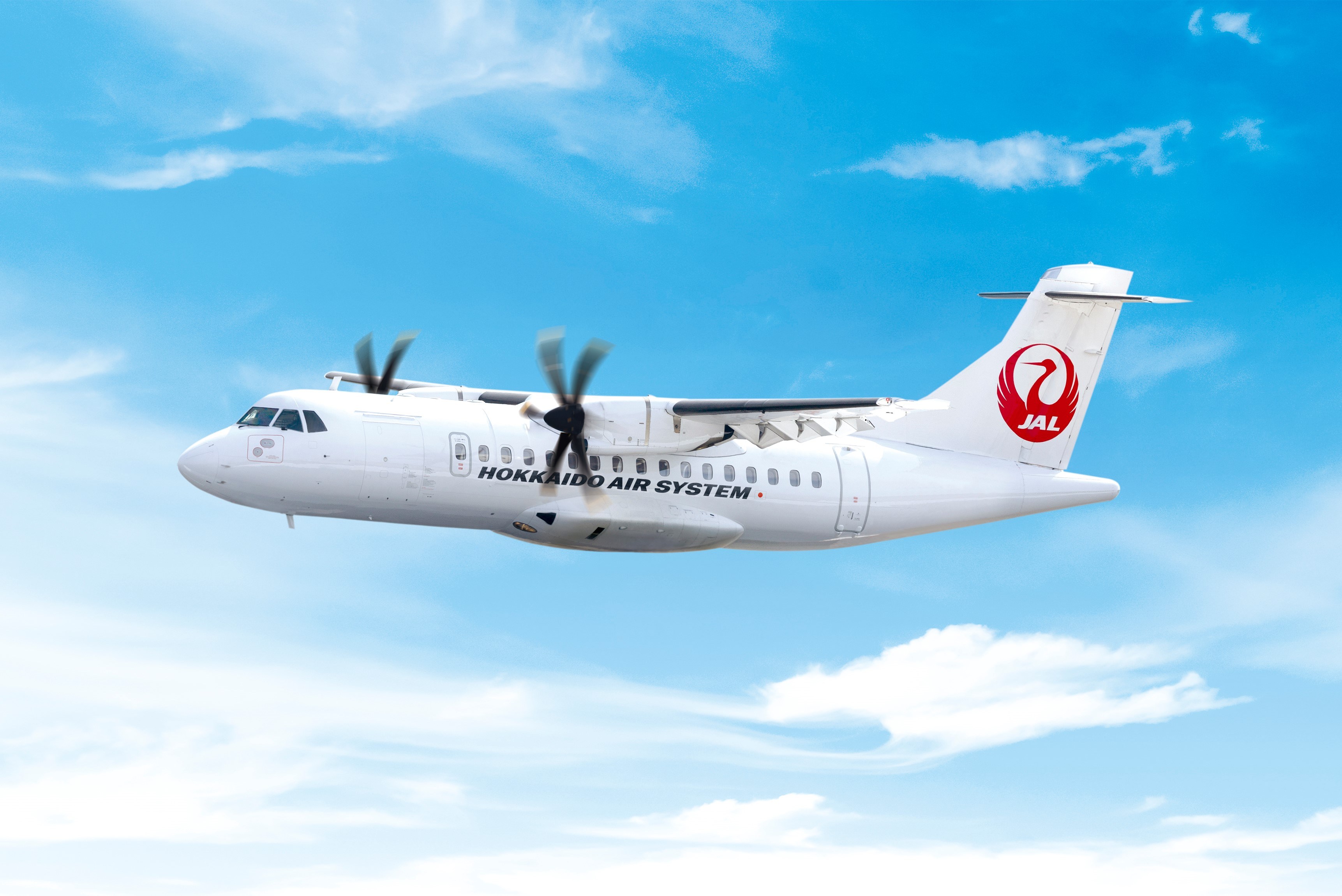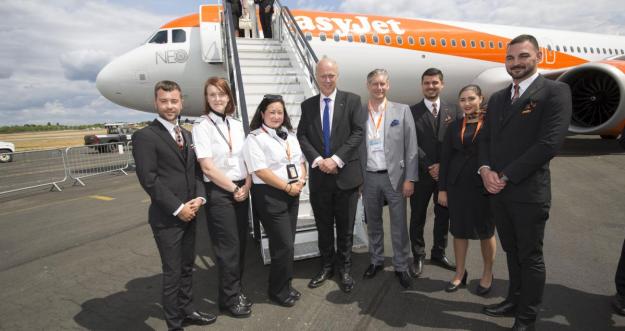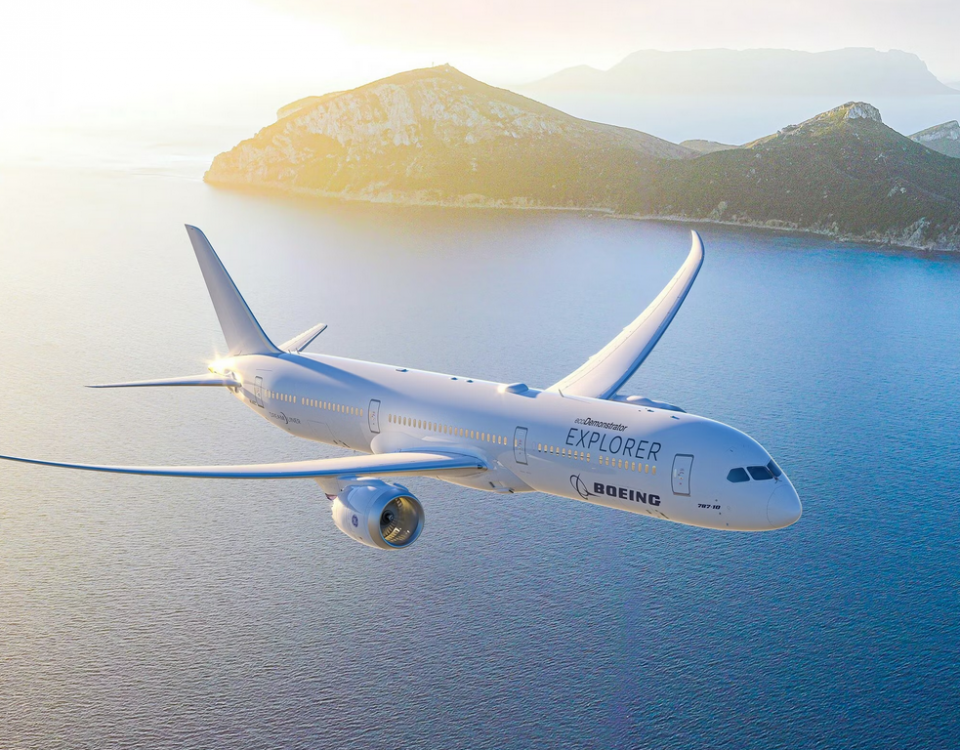
Hokkaido Air System Co., Ltd signs for two ATR 42-600s
July 19, 2018
Nigeria launches a new flag carrier – Nigeria Air
July 20, 2018easyJet has celebrated the delivery of its first A321neo aircraft, marking the milestone with a flight into Farnborough International Airshow on July 18, 2018.

easyJet CEO Johan Lundgren was joined by UK Secretary of State for Transport Chris Grayling, Airbus CEO Tom Enders and President of CFM International Gaël Méheust at Farnborough to celebrate the delivery of the A321neo which – with a 235 seat configuration – is easyJet’s largest capacity aircraft now in its fleet. The aircraft was flown into the airshow by an all-female flight crew.
Just over a year ago easyJet announced an agreement with Airbus to convert 30 existing A320neo orders to the A321neo aircraft with a 235-seat configuration, part of the existing easyJet Airbus agreement dating from 2013.
The first easyJet A321neo is based at London Gatwick Airport and will fly to popular destinations such as Malaga, Alicante and Palma. The aircraft has around 30% more seats on board compared to an A320 and 50% when replacing an A319.
The A321neos are powered by CFM’s LEAP-1A engine which means the aircraft will deliver up to 15 percent savings in fuel burn and CO2 emissions, and a reduced noise footprint of 50 percent on take-off and landing phase, compared with previous generations of the aircraft. The A321neos comply with ICAO Chapter 14 regulations and their NOx emissions will also meet the ICAO CAEP/8 regulations.
Since the delivery of easyJet’s first Airbus A320 family aircraft 15 years ago the airline has taken over 300 new aircraft deliveries, which means that easyJet has now grown to operate Europe’s largest A320 family fleet. With 100 neo aircraft on order the airline is one of Europe’s largest customers for this revolutionary new aircraft.
easyJet’s total fleet on July 18, 2018 comprises 308 aircraft, split between 156-seat Airbus A319s, 180-seat A320s, 186-seat A320s and now the 235-seat A321.
The airline’s A319s are being progressively replaced by A320s, with 40 already replaced.
easyJet has also completed the up-gauging of 49 of its existing 180-seat A320s to 186 seats. In the last six months easyJet has taken delivery of nine A320neo aircraft which provide a per seat cost saving of 7% to 8% compared to the A319 (and an equivalent improvement) through economies of scale, efficiencies in crew, ownership, fuel and maintenance.
Over the coming years easyJet will continue to reduce operating cost per seat and its passengers’ carbon footprint by improving its fleet mix and ownership structure.
Since 2000 easyJet has reduced its carbon emissions per passenger, per kilometre by over 32%. Its current target is a 10% reduction from its 2016 financial year performance by 2022, which would be a 38% improvement from 2000. In the 2017 financial year easyJet’s carbon emissions per passenger kilometre were 78.62 grams, down from 79.98g per passenger km in the prior financial year.
Photo: easyJet.



